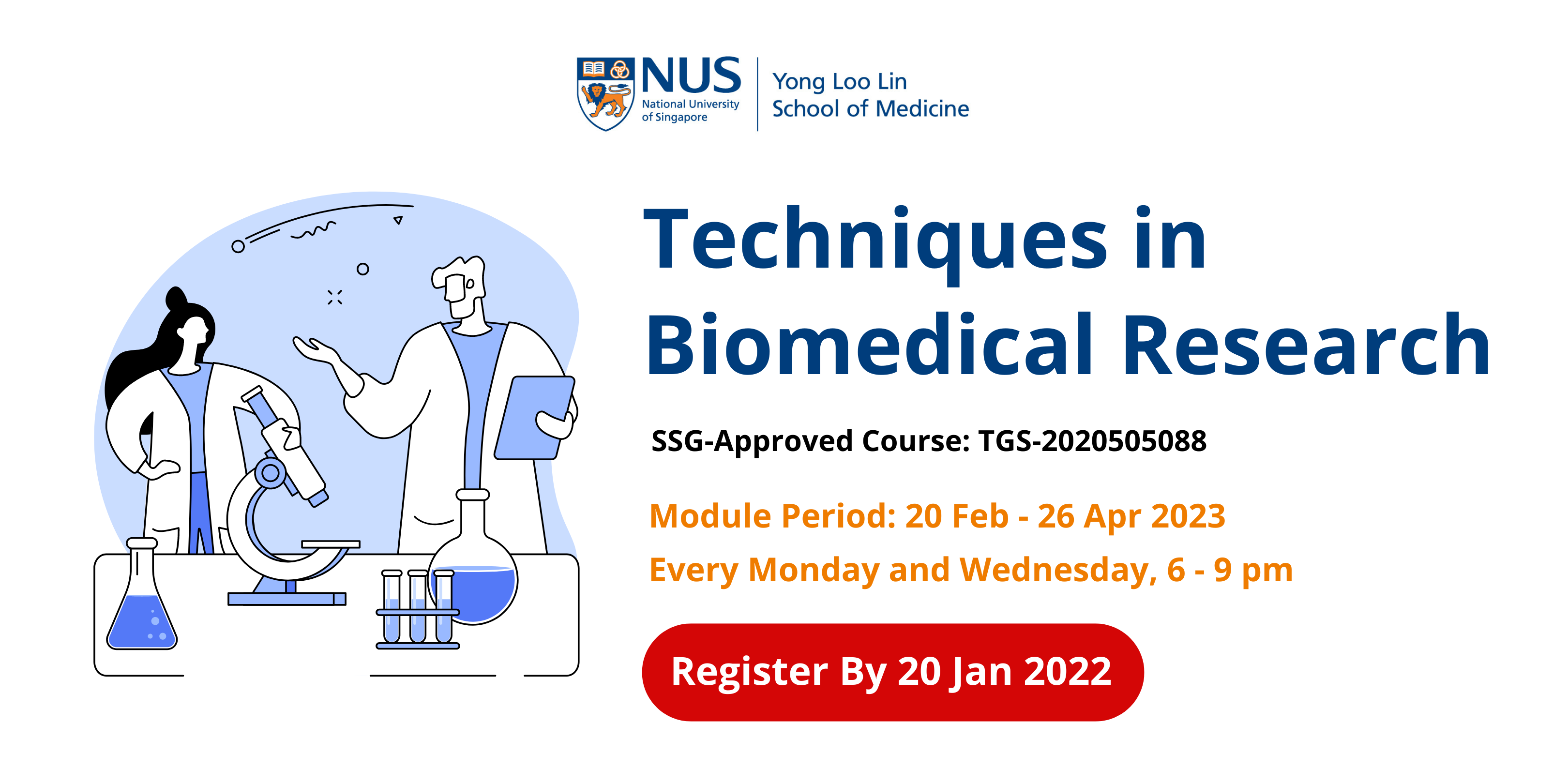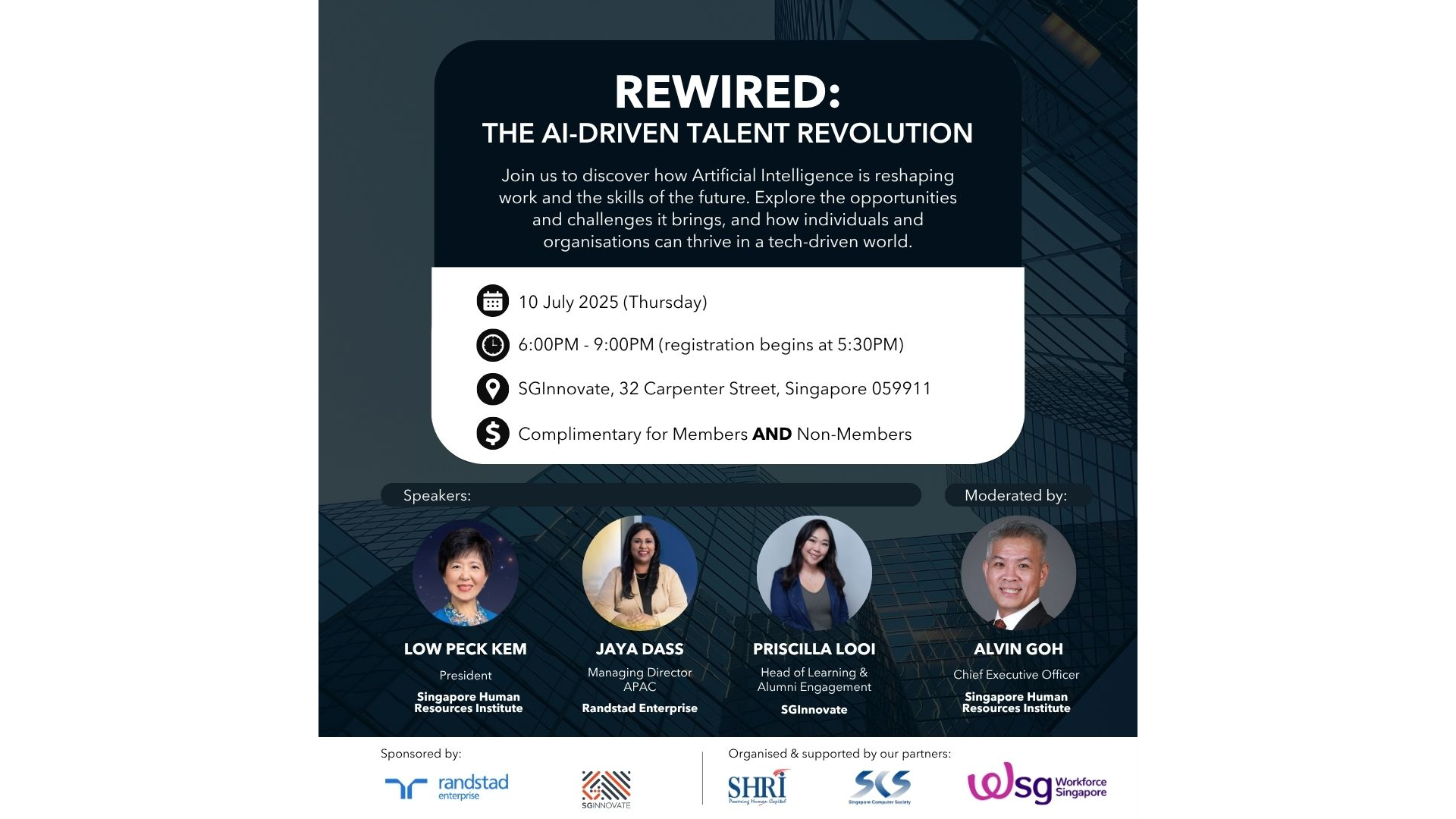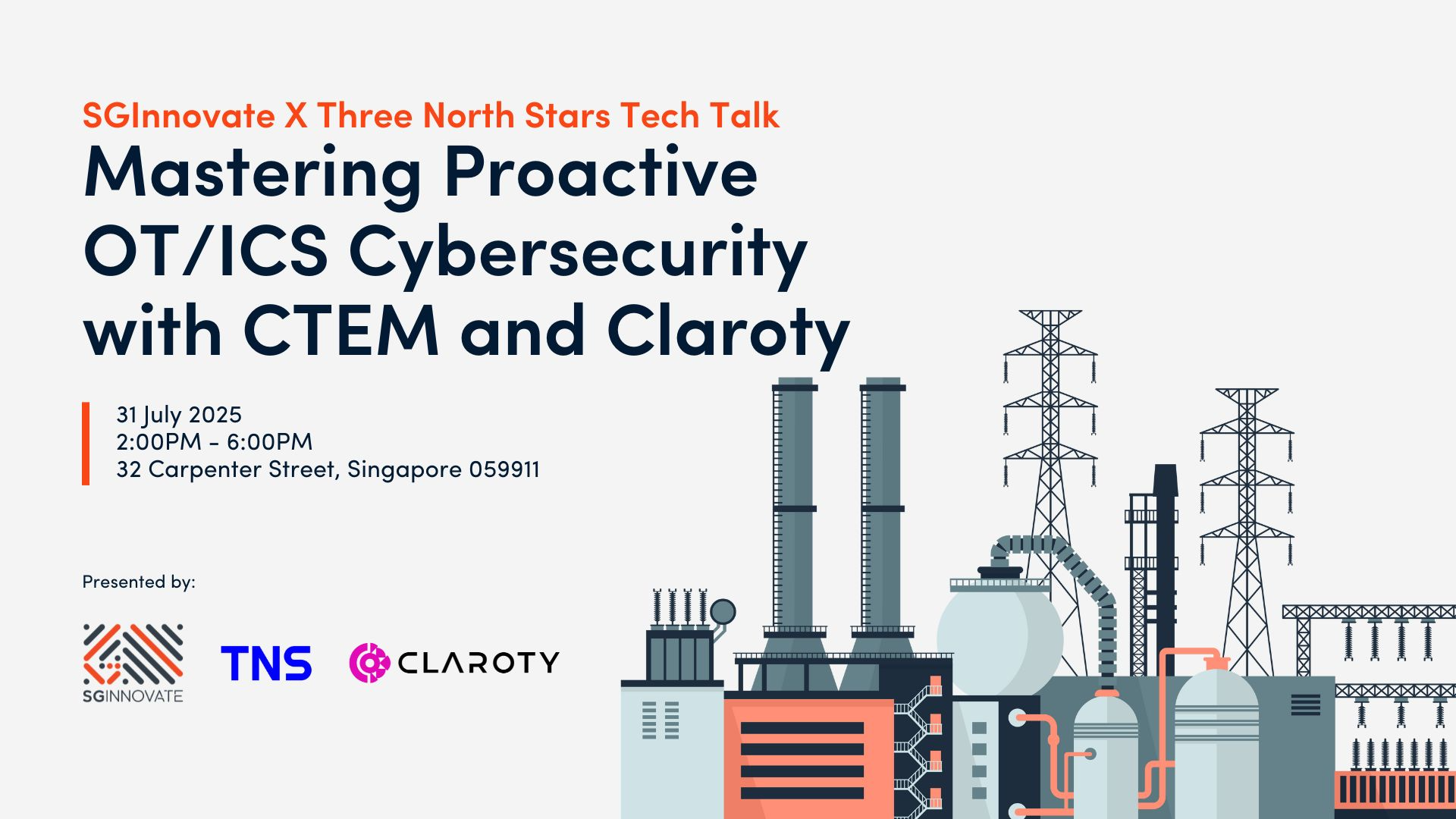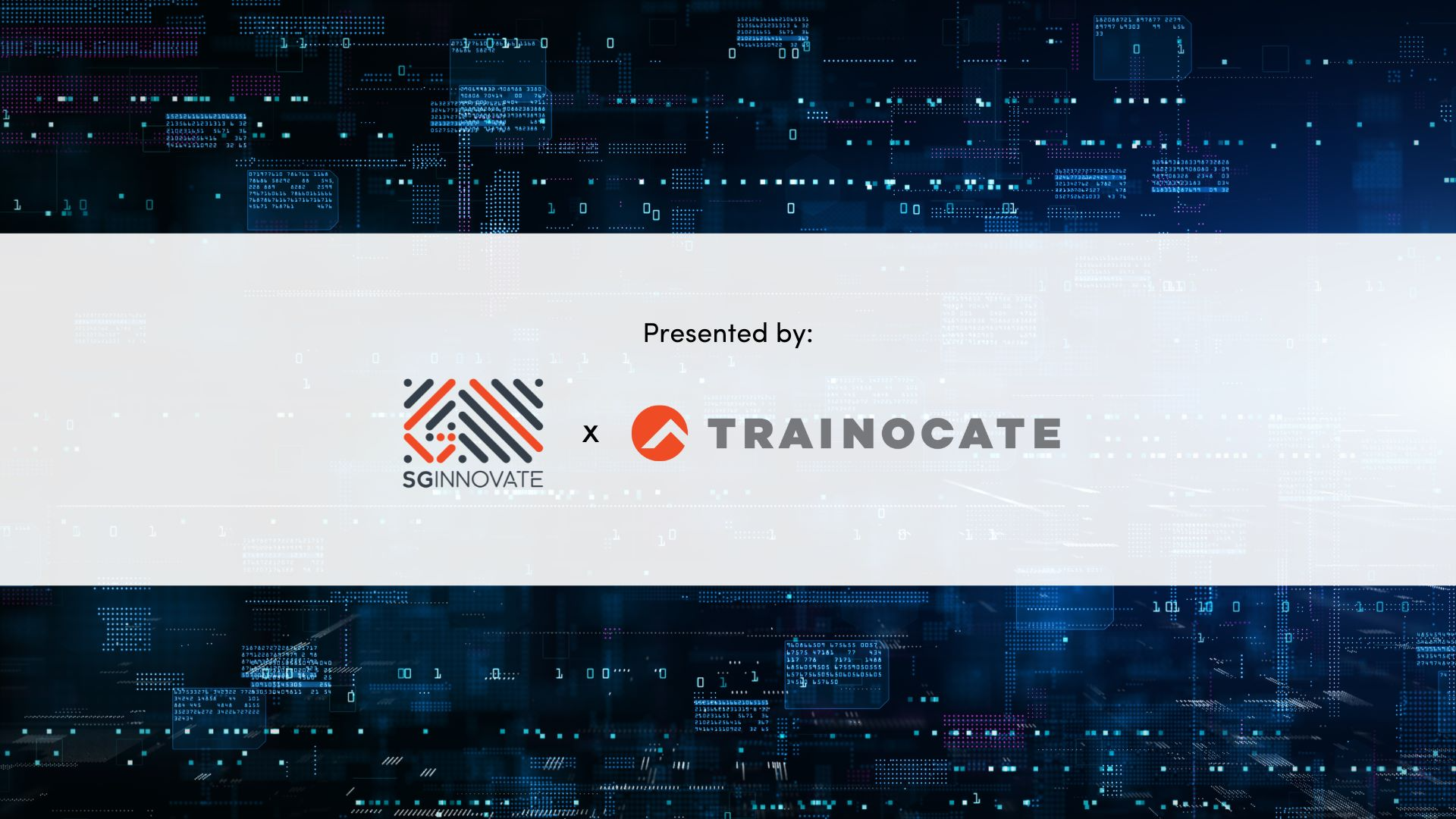Overview
Organised by the NUS Yong Loo Lin School of Medicine, Division of Graduate Studies, this 10-week non-academic module aims to educate participants on current techniques in biomedical research, including molecular and cellular biology, protein analysis and animal modelling.
Techniques in Biomedical Research is jointly presented by SGInnovate and National University of Singapore – Yong Loo Lin School of Medicine.
Learn to develop an understanding of the fundamental principles underlying common experimental techniques, as well as the advantages and limitations of each technique for specific research applications, to facilitate the critical analysis of experimental data.
These techniques include the different ways to study nucleic acids, proteins and lipids, key recent advances such as next-generation sequencing and CRISPR (clustered regularly interspaced short palindromic repeats), disease-specific approaches like stem cell and cancer biology, and the importance of big data analysis in the fast-evolving biomedical research landscape.
You will also gain better productivity in the workplace and be able to contribute increasingly to cutting-edge research which improves overall healthcare delivery.
Who Should Attend
- Research and lab officers in biomedical industries, research institutes and hospitals as well as science teachers in junior colleges and polytechnics
Register by 20 January 2023.
Pricing:
|
Full Course Fee: $5832(Full Fee w/o GST - $5400)
*based on 8% GST
Course Objectives
By the end of this course, you will be able to:
- Understand the fundamental principles underlying common experimental techniques
- Compare and contrast different techniques to identify the one best suited for each application
- Evaluate the advantages and limitations of each technique to better troubleshoot different tools for various purposes
- Maintain awareness of the evolving technology and stay updated on new advances in techniques
- Critically analyse self-authored experimental data to determine the degree of relevance to the original hypothesis
- Critically analyse third parties’ published papers and work to evaluate the robustness of the conclusions
Recommended Pre-requisites
- Participants are required to have at least a Bachelor’s or Master’s Degree in related fields such as Biology, Bioengineering, Life Sciences or Biotechnology.
For enquiries please reach out to [email protected] or [email protected].
Agenda
Course period: 20 Feb – 26 April 2023
Classes will be held every Monday and Wednesday, 6 - 9 pm






